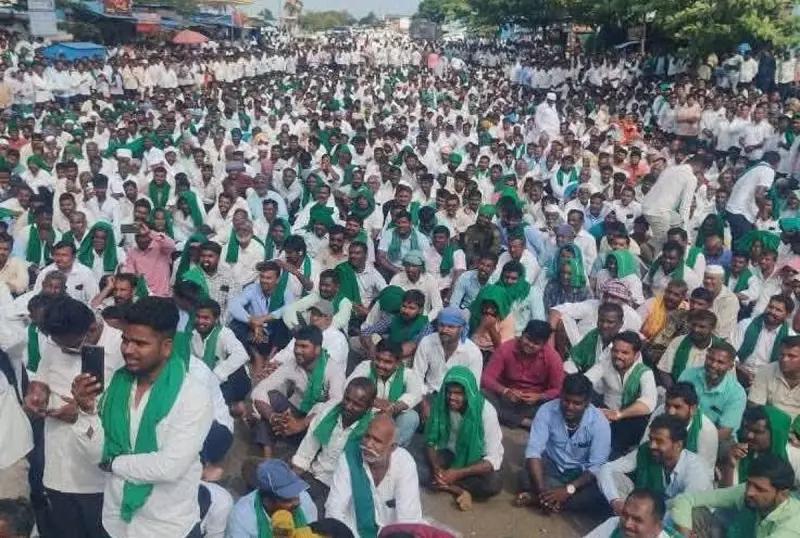
Hundreds of determined farmers from Karnataka's sugar belt regions converged on Belagavi district, staging a massive demonstration that brought attention to their long-standing grievances. The protest, organized by the Karnataka Rajya Raitha Sangha, saw agricultural workers demanding immediate government intervention to address the crisis in the sugarcane industry.
The Core Demand: Fair Compensation
At the heart of the protest lies a straightforward but crucial demand: farmers are insisting on ₹3,500 per tonne for sugarcane. This figure represents what they believe is a fair price that would ensure sustainable farming operations and provide decent livelihoods for their families.
Pending Dues Compound the Crisis
The situation has been exacerbated by significant delays in payments from sugar mills. According to farmer representatives, numerous mills across the state owe substantial amounts to sugarcane growers, creating severe financial strain within the agricultural community.
Protest Location and Impact
The demonstration unfolded at the Kittur Rani Chennamma Circle, a strategic location that ensured maximum visibility. Farmers traveled from various sugarcane-growing districts, including Belagavi, Vijayapura, and Bagalkote, to make their voices heard.
Key Demands Presented
- Minimum price of ₹3,500 per tonne for sugarcane
- Immediate clearance of all pending dues from sugar mills
- Government intervention to regulate sugar mill operations
- Protection against exploitation in the sugarcane industry
Police Presence and Traffic Management
Local authorities deployed significant police forces to maintain order during the protest. While the demonstration remained peaceful throughout, traffic in the surrounding areas experienced disruptions as farmers gathered in large numbers.
The protest highlights the ongoing challenges faced by sugarcane farmers in Karnataka, who continue to struggle for fair pricing and timely payments in one of the state's most important agricultural sectors.






